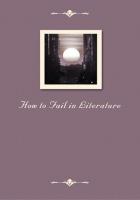Back from sea Martin Eden came, homing for California with a lover's desire. His store of money exhausted, he had shipped before the mast on the treasure-hunting schooner; and the Solomon Islands, after eight months of failure to find treasure, had witnessed the breaking up of the expedition. The men had been paid off in Australia, and Martin had immediately shipped on a deep- water vessel for San Francisco. Not alone had those eight months earned him enough money to stay on land for many weeks, but they had enabled him to do a great deal of studying and reading.
His was the student's mind, and behind his ability to learn was the indomitability of his nature and his love for Ruth. The grammar he had taken along he went through again and again until his unjaded brain had mastered it. He noticed the bad grammar used by his shipmates, and made a point of mentally correcting and reconstructing their crudities of speech. To his great joy he discovered that his ear was becoming sensitive and that he was developing grammatical nerves. A double negative jarred him like a discord, and often, from lack of practice, it was from his own lips that the jar came. His tongue refused to learn new tricks in a day.
After he had been through the grammar repeatedly, he took up the dictionary and added twenty words a day to his vocabulary. He found that this was no light task, and at wheel or lookout he steadily went over and over his lengthening list of pronunciations and definitions, while he invariably memorized himself to sleep.
"Never did anything," "if I were," and "those things," were phrases, with many variations, that he repeated under his breath in order to accustom his tongue to the language spoken by Ruth. "And" and "ing," with the "d" and "g" pronounced emphatically, he went over thousands of times; and to his surprise he noticed that he was beginning to speak cleaner and more correct English than the officers themselves and the gentleman-adventurers in the cabin who had financed the expedition.
The captain was a fishy-eyed Norwegian who somehow had fallen into possession of a complete Shakespeare, which he never read, and Martin had washed his clothes for him and in return been permitted access to the precious volumes. For a time, so steeped was he in the plays and in the many favorite passages that impressed themselves almost without effort on his brain, that all the world seemed to shape itself into forms of Elizabethan tragedy or comedy and his very thoughts were in blank verse. It trained his ear and gave him a fine appreciation for noble English; withal it introduced into his mind much that was archaic and obsolete.
The eight months had been well spent, and, in addition to what he had learned of right speaking and high thinking, he had learned much of himself. Along with his humbleness because he knew so little, there arose a conviction of power. He felt a sharp gradation between himself and his shipmates, and was wise enough to realize that the difference lay in potentiality rather than achievement. What he could do, - they could do; but within him he felt a confused ferment working that told him there was more in him than he had done. He was tortured by the exquisite beauty of the world, and wished that Ruth were there to share it with him. He decided that he would describe to her many of the bits of South Sea beauty. The creative spirit in him flamed up at the thought and urged that he recreate this beauty for a wider audience than Ruth.
And then, in splendor and glory, came the great idea. He would write. He would be one of the eyes through which the world saw, one of the ears through which it heard, one of the hearts through which it felt. He would write - everything - poetry and prose, fiction and description, and plays like Shakespeare. There was career and the way to win to Ruth. The men of literature were the world's giants, and he conceived them to be far finer than the Mr.
Butlers who earned thirty thousand a year and could be Supreme Court justices if they wanted to.
Once the idea had germinated, it mastered him, and the return voyage to San Francisco was like a dream. He was drunken with unguessed power and felt that he could do anything. In the midst of the great and lonely sea he gained perspective. Clearly, and for the first lime, he saw Ruth and her world. It was all visualized in his mind as a concrete thing which he could take up in his two hands and turn around and about and examine. There was much that was dim and nebulous in that world, but he saw it as a whole and not in detail, and he saw, also, the way to master it.
To write! The thought was fire in him. He would begin as soon as he got back. The first thing he would do would be to describe the voyage of the treasure-hunters. He would sell it to some San Francisco newspaper. He would not tell Ruth anything about it, and she would be surprised and pleased when she saw his name in print.
While he wrote, he could go on studying. There were twenty-four hours in each day. He was invincible. He knew how to work, and the citadels would go down before him. He would not have to go to sea again - as a sailor; and for the instant he caught a vision of a steam yacht. There were other writers who possessed steam yachts. Of course, he cautioned himself, it would be slow succeeding at first, and for a time he would be content to earn enough money by his writing to enable him to go on studying. And then, after some time, - a very indeterminate time, - when he had learned and prepared himself, he would write the great things and his name would be on all men's lips. But greater than that, infinitely greater and greatest of all, he would have proved himself worthy of Ruth. Fame was all very well, but it was for Ruth that his splendid dream arose. He was not a fame-monger, but merely one of God's mad lovers.















